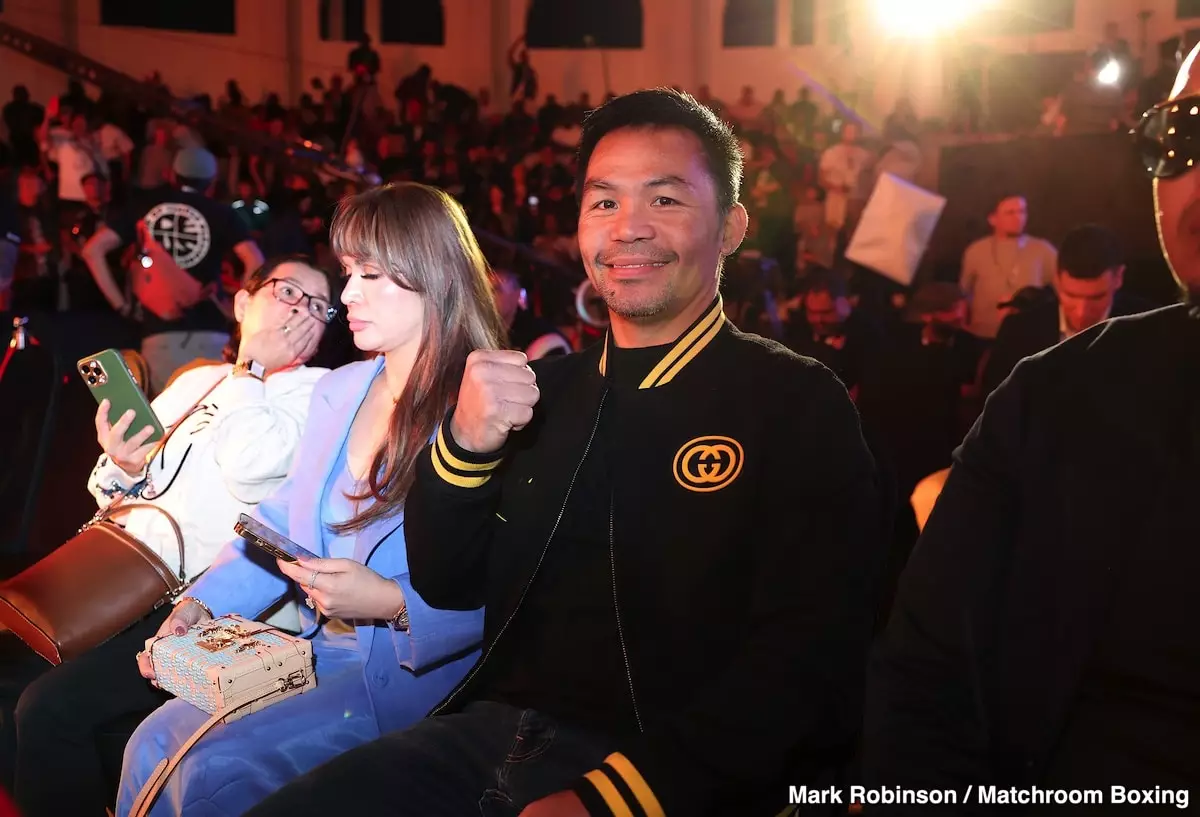Manny Pacquiao is not just a name in boxing; he represents a global phenomenon. With a career spanning decades, Pacquiao has captivated sports enthusiasts with his grit, tenacity, and remarkable achievements. Recently, as he celebrated his 46th birthday, the boxing legend posted a contemplative photo on social media, accompanied by the words, “8 divisions. Sitting here wondering…was it enough?” This introspective moment has sparked speculation regarding his potential return to the ring.
Pacquiao’s career is storied and unprecedented—a fighter who has conquered eight weight divisions, claiming titles in twelve separate categories. For any athlete, such a feat would suffice as a crowning achievement. However, for Pacquiao, the question of whether this legacy is adequate looms large. Could this inquiry resonate with athletes who often grapple with the insatiable pursuit of greatness? The pressures of public expectation and an unyielding internal drive might nudge Pacquiao towards the idea of returning for serious bouts rather than merely exhibition matches. Fighters like Mario Barrios and Conor Benn have been rumored opponents, underscoring the reality that Pacquiao’s boxing narrative might not be fully written yet.
Yet, the implications of such a comeback are fraught with complexities. Pacquiao’s last appearance in the ring against kickboxer Rukiya Anpo revealed vulnerabilities typically obscured by his illustrious past. Despite sustaining excellent physical condition and retaining a semblance of his famed speed, Pacquiao’s performance was far from inspiring. The fact that he allowed himself to be hit frequently raised alarms among fans who have witnessed his peak performances. The concern echoes the sheer unpredictability of boxing: can an aging fighter withstand the rigors of competition against top-tier talent? Would Pacquiao, who has admitted to contemplating his career’s accomplishments, truly risk tarnishing his legendary status?
The affection held for Pacquiao by his fans transcends borders. Celebrated in the Philippines and adored worldwide, many would argue that he has more than proven his worth to the sport. With numerous accolades lining his trophy case, the call from fans is for him to relish his past, not to seek what could potentially be a detrimental future. The boxing community is divided; while admiration remains steadfast, there are those who exclaim there’s nothing left for Pacquiao to prove. As he approaches induction into the Hall of Fame, it becomes imperative to reflect on legacy over potential risk. Active competitors have routinely faced a resurgence of vigor, but Pacquiao’s situation is distinct—his name is synonymous with greatness.
In a sport that often celebrates youth and vigor, the narrative of the aging champion is nuanced. Many athletes have attempted comebacks only to face disappointing outcomes. It raises the question of whether Pacquiao might be edging toward a similar fate. Will he join the ranks of celebrated fighters who, despite distinguished careers, returned to face humiliating defeats? The risks associated with the sport are considerable, and the narrative of “going out on top” becomes increasingly relevant with each passing year.
Ultimately, the decision rests with Manny Pacquiao. The introspective question he posed may reveal more about the universal athlete’s psyche than his own personal reflections. Deep down, the legacy he has cultivated speaks volumes, issuing a resounding answer to his musings about adequacy. The prospect of risk versus reward is an enduring conundrum across all sporting disciplines, and for Pacquiao, it has never been clearer: he has achieved more than enough. As the world anticipates his next steps, one can only hope that the champion opts for clarity over confusion, relishing his monumental legacy rather than risking it for fleeting glory.

